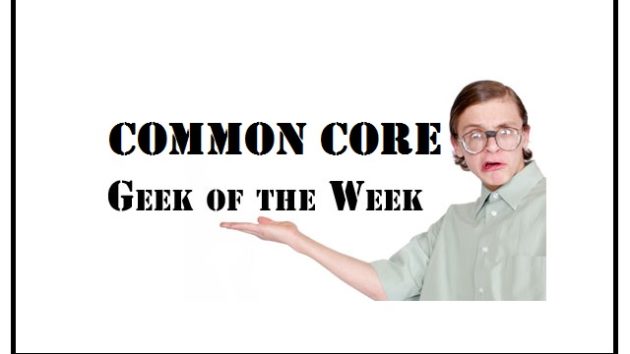Common Core: Victim to the “Well Meaning Technocrats”?
What now for the Common Core?
That is the question that the three hoping to Save the Core asked on the October 22, 2014, AEI panel.
Of course, their answers completely gloss over the fact that the Common Core (CCSS) is a bureaucratic attempt to frankenstein “success by standardization” out of a failed, high-stakes-test-driven No Child Left Behind (NCLB).
On October 26, 2014, I wrote my first post on this AEI panel, but there is just soo much nonsense emanating from them, I had to write a second post.
I haven’t even gotten to the actual panel discussion yet. The first post was on the event summary, and this second is on the video description.
In that description, AEI “scholar” Rick Hess rose tints his view of CCSS concoction, with his words being taken from another CCSS discussion:
In 2010, the Common Core State Standards were widely supported. But 60 percent of Americans now oppose them, and several states are rethinking their earlier stance. In a recent National Affairs piece, AEI’s Rick Hess argues, “The trouble with the Common Core is not that it was the handiwork of nefarious, anti-American ideologues or self-dealing, anti-teacher dogmatists,but that it was the work of well-meaning, self-impressed technocrats who fudged difficult questions, used federal coercion to compel rapid national adoption, and assumed that things would work out.” [Emphasis added.]
Love how Hess paints those “technocrats” as “well meaning.”
How kind. And how accountability-exempt of Hess: No problem. Let’s just organize a panel to promote the salvaging of their techno-crap.
 Repackage the crap, and the flies will still buzz around it.
Repackage the crap, and the flies will still buzz around it.
At least the public is not yet fully aware.
Indeed, even as panelists note that the public is not generally aware of CCSS (see the AEI panel event summary), they cite CCSS as being “widely supported.”
So, who has been responsible for all of that “previous wide support”? Well, in 2009, 46 governors and state superintendents signed on for a nonexistent CCSS, and US Secretary Arne Duncan was already cheering for the unwritten standards and even dangling federal money for future CCSS assessments. And billionaire Bill Gates was supporting CCSS because CCSS edupreneur “lead writer” David Coleman and CCSS “owner” organization, the Council of Chief State School Officers (CCSSO) President Gene Wilhoit asked Gates to pay for CCSS. Then there were both national teachers union leaders endorsing the freshly-minted-though-unpiloted CCSS.
Let us also remember standards-grading Thomas B. Fordham Institute and its favorable “grading” of CCSS in July 2010– one month after the finished-and-never-tested CCSS product was birthed.
All of that “wide support” was outside of the school house and the local community.
In Fall 2014, Arne Duncan still pushes for CCSS, as do Bill Gates, David Coleman, Fordham Institute, and both national teachers unions. A Gates-funded survey notes that most state superintendents are still pro-CCSS. The governors, well, they’re a shaky bunch, with many having second thoughts about this marvelous CCSS that they signed on for before a CCSS existed and some trying to distance themselves from a CCSS they inherited.
In short, those originally Core-happy– who happen to be outside of the classroom and therefore untouched by *CCSS excellence*– tend to stay Core-happy.
The governors might be finding that CCSS to be a pain in their career paths.
Let us move on to another term Hess uses in the above defense of those responsible for CCSS: He declares them as not being the “hanidwork” of the “self- dealing.”
Not so.
Consider David Coleman, a self-confessed non-teacher who had no background in standards writing and declared himself and others involved in the inner circle of CCSS writing as “that collection of unqualified people who were involved in developing the common standards.”
How did Coleman get in on this CCSS gig in the first place?
I answer that question in my CCSS book (due for publication April 2015). However, the short of it is that Coleman has connections to Arne Duncan that go back to 2002 and Duncan’s days as Chicago Public Schools (CPS) CEO. Coleman’s then-brand-new “data-driven” assessment company, Grow Network, was contacted with CPS for over $2 million in data-driven “consulting” in the heyday of NCLB.
Coleman rode the NCLB wave until 2007, at which time he created Student Achievement Partners (SAP)– the “silent partner” on the inside of CCSS development.
SAP is now a nonprofit exclusively dealing in CCSS– and for which all five CCSS standards-writing “leaders” work– Zimba, Pimentel, McCallum, and Daro– except for Coleman, who has moved on to the presidency of CCSS-insider organization, the College Board– where he has dumbed down the SAT to force-fit it to CCSS.
Not “self-dealing”?
Already the stage is set for what I am certain will be an enlightening hour-and-a-half video.
Feel free to watch it. I will be writing about it soon.
I can hardly wait.


